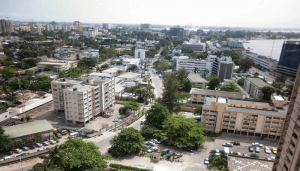Tightening imminent in MFBs after recapitalisation – NDIC
The Nigeria Deposit Insurance Corporation (NDIC) on Thursday disclosed that there would be strong tightening in the Microfinance bank sub-sector after recapitalisation exercise.
The Central Bank of Nigeria (CBN) had given the MFBs till April 2022 to fully recapitalise. The first tranche of the recapitalisation exercise ended in April this year.
Veronica Ogbo-Ikwe, director – special insured institutions department (SIID), said there has been a good response on recapitalisation from the MFBs.
Speaking at the 18th workshop for business editors and Finance Correspondents Association of Nigeria (FICAN) in Gombe State, she said some of the consolidated shares of some of the micro banks that have met their capital are going over 60 percent.
Ogbo-Ikwe encouraged those that have not met their capital requirements to either merge or relocate to another license category or go into acquisition.
Taiwo Joda, managing director and CEO, Accion Microfinance Bank, who chaired the session said the National license MFBs have met their capital requirements and that the focus now is to assist the Unit MFBs by encouraging them to merge rather than to raise funds.
The CBN had on October 22, 2018, reviewed upward the minimum capital requirement of the three categories of MFBs as follows – Unit microfinance banks from N20 million to N200 million, State MFBs from N100 million to N1 billion and the National MFB from N2 billion to N5 billion.
Ogbo-Ikwe said a resilient, transparent, stable, de-risked Microfinance industry offers mutual benefits to the private sector and the economy as it: provides stable, sustainable returns – private sector; promotes or engenders confidence in the financial system; improves financial inclusion and; promotes the much sought after inclusive economic development of the country.
Read also: Scramble for First Bank shares continues
“The whole gamut or retinue of the supervisory responses are targeted at building resilience, sustainability, the capacity of the Micro Finance institutions so that they are well-situated to deliver on the expected goals,” she said.
She pointed out some of the challenges facing the microfinance sub-sector to include hostile economic climate, escalating insecurity, disruptions in the financial space by financial technologies (FinTechs) and cybercrime.
Other challenges are weak institutions – capital base-vulnerable to losses, deadline for the Central Bank of Nigeria (CBN) new recapitalisation requirement, funding – difficulty to grow organically, unattractive to investors, weak collateral, deviation from the MfB business model, weak corporate governance, and ponzi schemes “wonder banks”, demarketing and diminishing confidence in MfBs.
In consideration of the impact of the COVID-19 pandemic on economic activities in the country, the regulator of banks in 2020 revised the deadline for compliance with the minimum capital requirement for microfinance banks by one year.
Consequently, MFBs operating in rural, unbanked and underbanked areas (Tier 2) are expected to meet the N35 million capital threshold by April 2021 and N50 million by April 2022:
MFBs operating in urban and high density banked areas (Tier 1) are expected to meet the N100 million capital threshold by April 2021 and N200 million by April 2022;
State licenced MFBs are to increase their capital to N500 million by April 2021 and N1 billion by April 2022; and
National MFBs are expected to meet minimum capital of N3.5 billion capital by April 2021 and N65 billion by April 2022.









